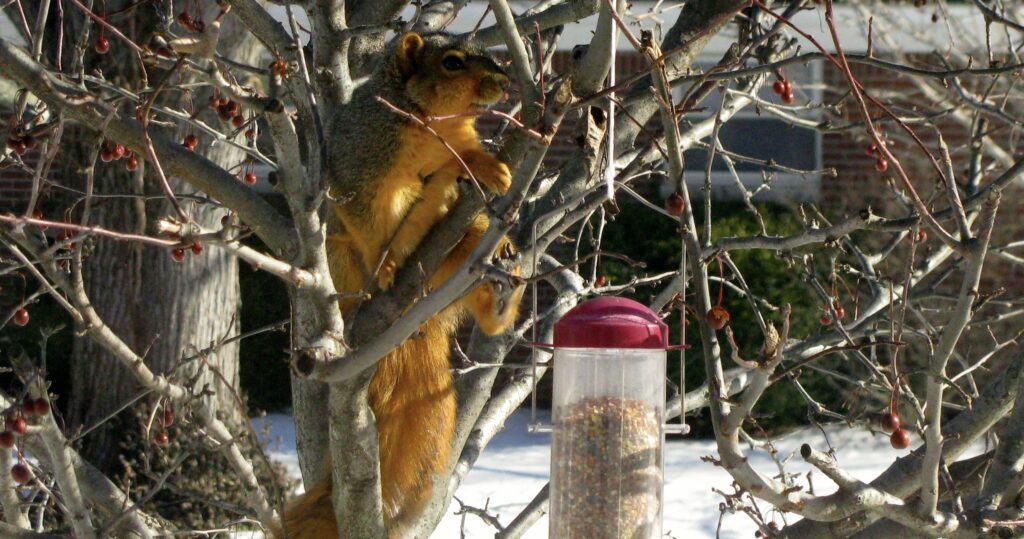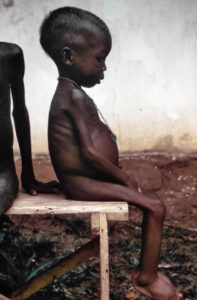
Indianapolis, IN & Lilongwe, Malawi … From my kitchen window, I’ve been watching a squirrel scurry about the yard. This furry, fast, and friendly little fellow has been busily gathering walnuts that have fallen from our trees. He has been trying to secretly bury as many as he can in our flower beds, preparing them for future excavation. As leaves in nearby trees are turning from green to bright orange, a few of them are beginning to drift earthward, a sure sign of the coming season. The morning offers a bit of cool air, a gentle reminder that fall is approaching. The squirrel is fully aware of this and is quite focused on packing away a food supply for the long winter months. Even as I watch, he scurries up a nearby tree and eyes the seed in the bird feeder. If only he could make the jump to the feeder. If only.
Halfway around the world and in the southern hemisphere, the seasons are the opposite of what we experience. In the southeast African nation of Malawi, temperatures are beginning to warm and the rains will soon drench the earth with much-needed water. Planting will begin, and another season of hope, especially for the large number of subsistence farmers, will be upon the people of Malawi. The time between planting and harvesting is of concern for the squirrel, but I can attest that his current harvest has been bountiful. The previous harvest of some sections of Malawi has not been as fortunate as my little furry friend. For many, this period between the last harvest and the one that is months away will deplete the family food reserves. Although the Malawi Project grain storage buildings, (please search “Joseph Project” on our web page for this exciting venture), have been very encouraging, this self-sustaining program is in its infancy.
Crop predictions for Malawi are already sending out stark warnings like the article titled, “2.6 MILLION MALAWIANS FACE HUNGER AS FOOD CRISIS LOOMS”. Reported in early September by Nyasa Times, the report made by the Malawi Vulnerability Assessment Committee paints a depressing picture. It stated that crop failures have been a result of floods in some regions, dry spells in others, and both Fall Army Worms and African Army Worms. All of us in the United States understand the effects of Covid-19, but few in our country face the uncertainty of feeding ourselves or our family. Unfortunately, many Malawians are facing the pandemic with empty stomachs. The social programs and government assistance that some in America will need to utilize do not exist in Malawi. Many in Malawi will stare at their newly planted crops wondering if they can survive until the next harvest, months and months from now. Our goal for them, and certainly the goal they have for themselves, is to be self-sustaining. We are working with them to accomplish this critical goal, but we simply aren’t there yet.
Thanks to several contributors including World Emergency Relief, Universal Aide, and generous individual donors, the Malawi Project and Action for Progress are stockpiling food reserves in the Lilongwe warehouse for the upcoming struggle. This is the first time that we have acquired food reserves ahead of the suffering. The newly built (and completely funded) distribution hub has made it possible to prepare for the upcoming known shortfall by storing grain and making it ready for those that will be in need over the next few months. It has been so encouraging to see the effort of Malawians to organize and prepare for food distribution while learning the methods needed to store grain from future harvests in years of a surplus.

Suddenly the fat squirrel looking back at me after burying yet another nut reminds me of a different image. A picture from the Center for Disease Control of a small child in Nigeria suffering the results of severe famine flashes through my mind. May God give us the ability and willingness to prevent that picture from being repeated in Malawi.
